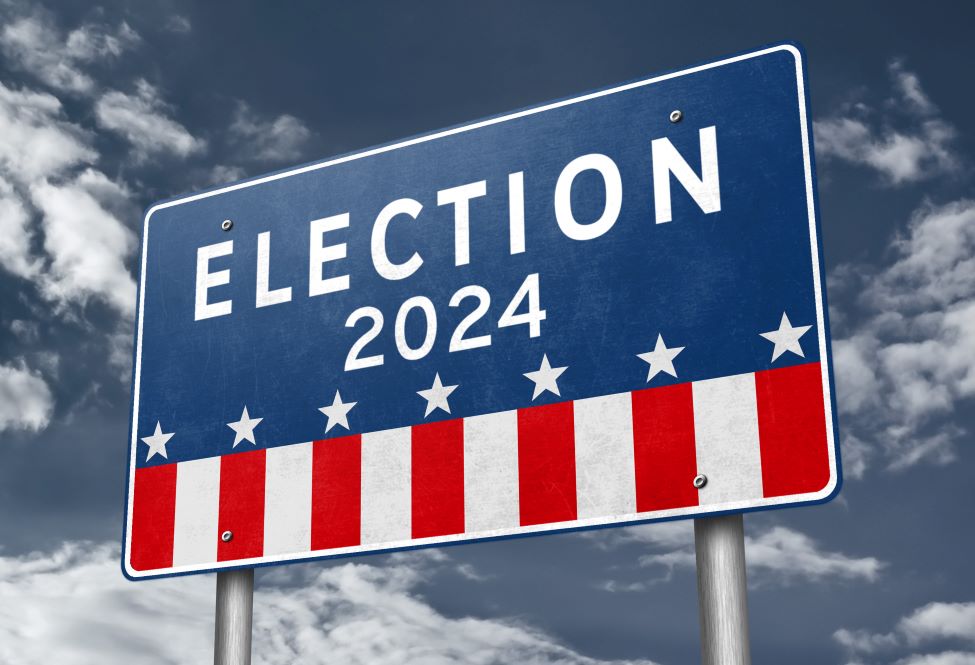FAU/Mainstreet Poll: Trump Edges Harris in Georgia and North Carolina

2024 presidential race is in its final 2 months
A new poll from the Florida Atlantic University Political Communication and Public Opinion Research Lab (PolCom Lab) and Mainstreet Research USA reveals a tight U.S. presidential race in the swing states of Georgia and North Carolina.
The recent polls conducted in Georgia and North Carolina reveal a highly competitive landscape for the upcoming election, offering significant insights into voter preferences, media consumption and electoral trust.
Former U.S. President Donald Trump holds a small lead over U.S Vice President Kamala Harris 47% to 45% among likely voters in Georgia. And in North Carolina, Trump narrowly leads Harris 48% to 47%.
In the North Carolina gubernatorial race, Democratic candidate Josh Stein is leading Republican Mark Robinson 50% to 39%, with 7% of likely voters undecided.
“The close distribution of support between the two major party candidates suggests that Georgia and North Carolina remain highly competitive,” said Kevin Wagner, Ph.D., professor of political science and co-director of the PolCom Lab. “Among likely voters, the undecided population, though small, could still play a crucial role in determining the outcome, particularly in a tight race such as this one.”
Trust in Election Process: Majority Confident, but Division Remains
While the race in both states is tight, the way voters feel about the process remains positive, with 61% in Georgia indicating they find the electoral process trustworthy (33% very trustworthy and 28% somewhat trustworthy). In North Carolina, 56% find the process trustworthy (33% very trustworthy and 23% somewhat trustworthy).
Campaign Ad Visibility: Mixed Results in Ad Wars
As Trump and Harris fight for visibility through their respective ad campaigns, each candidate can claim more visibility in one of the states. In Georgia, Harris/Walz ads are slightly more visible (31%) than Trump/Vance ads (23%); while in North Carolina, Trump/Vance ads are slightly more visible (29%) than Harris/Walz ads (26%).
News Source Preferences: Traditional Media Dominates, Digital Gains Ground
Likely voters in both states continue to utilize cable news as their main source of information. Of those polled, 41% in Georgia and 39% in North Carolina seek this traditional format, with 28% in Georgia and 25% relying on national news. More Republicans prefer cable news’ sources (53% in Georgia, 49% in North Carolina); as compared to Democrats (35% in both Georgia and North Carolina); and Independents (28% in Georgia; 32% in North Carolina).
Online news sources are preferred by 19% in Georgia and 18% in North Carolina; however, 30% of voters in Georgia and 25% in North Carolina under the age of 50 indicated they use social media and websites over all other forms of media.
“The divide in how voters get their news reveals just how fractured political media has become,” said Carol Bishop Mills, Ph.D., professor of communication and co-director of the PolCom Lab.
The polls also reveal other implications of findings regarding media landscape, nationalization of the race, as well as ad visibility and voter engagement:
- The dominance of cable news underscores the importance of television advertising and appearances for candidates for older and more conservative voters.
- The significant share of online sources, particularly for younger voters, indicates that campaigns must maintain a strong digital presence.
- Low reliance on local news (8% in Georgia, 12% in North Carolina) suggests voters are focused on broader narratives, impacting campaign strategies.
- The near-even split in ad visibility indicates intense competition, with potential voter fatigue due to high ad saturation.
The polls were conducted Sept. 5 and 6 among registered voters in Georgia (647 respondents) and North Carolina (692 respondents). The surveys employed a mixed-mode methodology, combining Interactive Voice Response telephone interviews with an online panel to ensure comprehensive coverage. Respondents could complete the survey in English or Spanish. To achieve representativeness of the voting population, weights were applied for gender, race, education, and past vote. Party identification was determined by asking respondents which party they most identify with. A likely voter screen was applied based on self-reported likelihood to vote. While a traditional margin of error cannot be assigned due to the mixed methodology, a poll of this size would typically have a margin of error of approximately ±3.9% for Georgia and ±3.7% for North Carolina at the 95% confidence level, with higher margins for subsamples. As with all surveys, these polls are subject to various sources of error, including sampling, coverage and measurement error.
-FAU-
Latest News Desk
- FAU BEPI: Economic Strain Hits Hispanic Households Hard in 3rd QuarterHispanic consumer confidence dropped in the third quarter of the year as uncertainty and increased prices placed added pressure on their budgets, according to a poll from Florida Atlantic University's BEPI.
- FAU's Queen Conch Lab Receives Prestigious International AwardFAU Harbor Branch researchers have received the 2025 Responsible Seafood Innovation Award in Aquaculture from the Global Seafood Alliance for its Queen Conch Lab's pioneering work in sustainable aquaculture.
- After Cancer: Study Explores Caring-Healing Modalities for SurvivorsResearch from FAU's Christine E. Lynn College of Nursing highlights how caring-healing methods like mindfulness can ease distress and build resilience in cancer survivors.
- FAU Researchers 'Zoom' in for an Ultra-Magnified Peek at Shark SkinWhat gives shark skin its toughness and sleek glide? Tiny, tooth-like denticles. Researchers used electron microscopy to reveal how these structures shift with age, sex, and function in bonnethead sharks.
- FAU Receives $1.6M Gift for Student Entrepreneur ScholarshipsFlorida Atlantic University received a $1.6 million gift from long-time Boca Raton resident Bob Schattner, which will be used to continue providing scholarships that he established 15 years ago in perpetuity.
- FAU Lands $3M Federal Grant to Prevent Substance Use in At-risk Youth"Rising Strong" will support more than 3,000 South Florida youth with trauma-informed, evidence-based prevention, empowering vulnerable populations to build resilience and choose substance-free futures.






